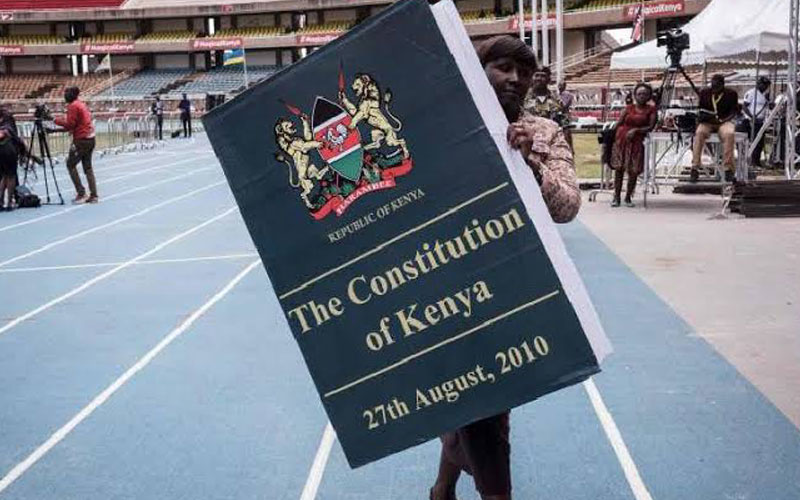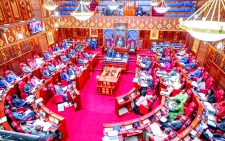Folly of Katiba Day fete without constitutionalism

Since a new Constitution was adopted on 27 August 2010, pro-reform citizens, civil society organisations and quasi-state institutions have marked its promulgation as the start of a trajectory of transformative governance.
But as Professor Yash pal Ghai, who led the constitutional review process and the subsequent related national conference at Bomas in 2003-04, would put it, Kenya was a classic case of a constitutional democracy without constitutionalism.
One does not need lenses to notice that though Kenya is a constitutional democracy in the letter of the Constitution, successive leaders and institutions tasked with breathing life into the wordings of the supreme law have constantly failed to live by the calling of their high offices. As a result, clashes between what is written in the document and actual conduct are daily occurrences that anyone can see.
Take, for example, the ritualistic requirement that whenever a constitutional or public-office institution is recruiting officers, applicants are required to satisfy Chapter Six of the Constitution on leadership and integrity. While we have had instances when individuals were not appointed because they performed poorly in interviews, I can hardly remember when anyone was rejected for failing the integrity test, save for the few instances when courts declared so.
Such contradictions came to the fore at one of this year’s Katiba Day events at Ufungamano House on August 28, appropriately dubbed ‘Okoa Katiba’ (save the Constitution), as the anniversary is widely called in Kiswahili. It was a privilege to be invited by the Azimio party to be on a panel that reviewed the performance of the Constitution, as well as that of State institutions and others at the county level. The focus was on how the socio-political ills of corruption, tribalism and nepotism persist as impediments to equal access to opportunities.
Put differently, the panel was about leadership and integrity as envisaged in Chapter Six of the Constitution. Lo and behold, I was paired with Morara Kebaso, the Gen Z firebrand who has understandably styled himself as the public auditor-at-large, doing a commendable job as a social auditor on publicly funded projects that have become the gravy train for the corrupt. Kebaso ably used his share of the time to spotlight public projects that President William Ruto was launching almost daily, some of them twice, to announce the amount of resources that had gone into a non-existent enterprise that was yet to take off since its initial launch, at times with claims that billions of taxpayers’ money had allegedly been spent on it.
Kebaso said the President “launched” projects that he had previously launched as President. But it was Kebaso’s rendition of the launching ceremonies, complete with his near-perfect imitation of how the President speaks and gestures, that has become the climax of the shame of political leaders’ moral decay.
Integrity is about being accountable and following through with decisions made. To this extent, President Ruto has already failed the integrity test when he promised to reduce the number of his advisers now choking the public wage bill only to reappoint into advisory roles some of the Cabinet ministers he had dismissed. These are roles taxpayers can ill afford, never mind that the President has never been transparent enough to disclose how many advisers he had in the first place!
As the cornerstone of effective leadership, integrity is about being honest, embodying trustworthiness and moral uprightness regardless of any short-term implications. Leaders who prioritise integrity cultivate a culture of transparency and trust, laying the foundation for sustained success.
So if you were still in doubt as to why there is so much trust deficit in Kenya’s leaderships – political, religious, administrative or traditional – lack of integrity in our leaders is the answer.
The writer is the Executive Director of the Kenya National Civil Society Centre; suba_churchill@yahoo.com












